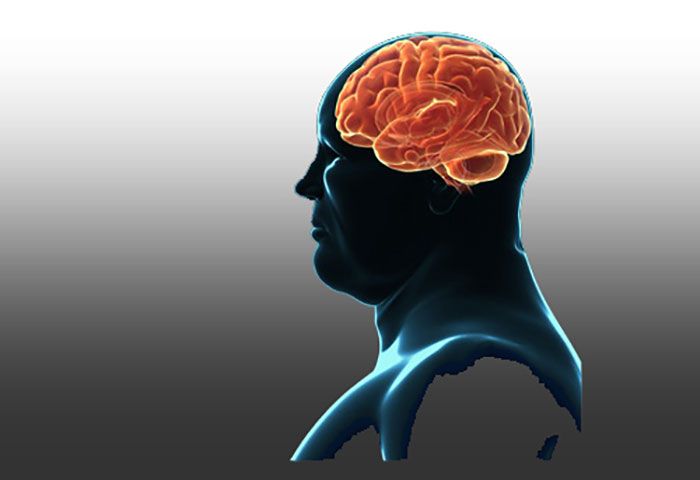Brain responses to specific nutrients are diminished in individuals with obesity and are not improved after weight loss, according to a study in human volunteers, led by researchers at Amsterdam UMC and Yale University. The overall findings may partially explain why many people put weight back on even after successfully dieting.
“Our findings suggest that long-lasting brain adaptations occur in individuals with obesity, which could affect eating behavior, said research lead Mireille Serlie, MD, PhD, who is professor of endocrinology at Amsterdam UMC. “We found that those with obesity released less dopamine in an area of the brain important for the motivational aspect of food intake compared to people with a healthy body weight. Dopamine is involved in the rewarding feelings of food intake. The subjects with obesity also showed reduced responsivity in brain activity upon infusion of nutrients into the stomach. Overall, these findings suggest that sensing of nutrients in the stomach and gut and/or of nutritional signals is reduced in obesity and this might have profound consequences for food intake … The fact that these responses in the brain are not restored after weight loss may explain why most people regain weight after initially successful weight loss.”
Serlie and colleagues reported on their findings in Nature Metabolism, in a paper titled “Brain responses to nutrients are severely impaired and not reversed by weight loss in humans with obesity: a randomized crossover study,” in which they concluded, “Impaired neuronal responses to nutritional signals may contribute to overeating and obesity, and ongoing resistance to post-ingestive nutrient signals after significant weight loss may in part explain the high rate of weight regain after successful weight loss.”
Food intake is dependent on the integration of complex metabolic and neuronal signals between the brain and several organs, including the gut and nutritional signals in the blood. “… increasing evidence shows a potent role for signals that arise after the ingestion of food—so-called post-ingestive nutrient signals—in the regulation of eating behavior,” the authors noted. This network triggers sensations of hunger and satiation, regulates food intake as well as the motivation to look for food. But while these processes are increasingly becoming better understood in animals, including in the context of metabolic diseases such as obesity, much less is known about what happens in humans. “Despite these intriguing mostly preclinical studies, little is known about the role of post-ingestive nutrient signals in human physiology or obesity development,” they continued. This is partly due to the difficulty in designing experimental setups in the clinic that could shed light on to these mechanisms.
In order to address this lack of knowledge, Serlie, who is also a professor at Yale, and colleagues from both institutions designed a controlled trial. The study involved infusing specific nutrients directly into the stomach of 30 participants with a healthy body weight and 30 individuals with obesity, while simultaneously measuring their brain activity through the use of MRI and dopamine release using SPECT scans. “ … we hypothesized that intragastric infusions of glucose and lipid modulate cerebral neuronal activity and striatal dopamine release in lean humans and that these responses are impaired in humans with obesity,” the investigators stated. The participants with obesity were studied both before and after dietary intervention aimed at reducing body weight by 10%. “… we hypothesized that an impaired response to post-ingestive nutrient signals is partially reversible with diet-induced weight loss,” the researchers added.
Their results showed that while the participants with a healthy body weight displayed specific patterns of brain activity and dopamine release after nutrient infusion, these responses were severely blunted in participants with obesity. Moreover, 10% body weight loss (following a 12-week diet) was not sufficient to restore these brain responses in individuals with obesity, suggesting that long-lasting brain adaptations occur in the context of obesity and remain even after weight loss is achieved. “Taken together, these observations provide insights into the physiology of human eating behavior, and the pathophysiology of obesity,” the investigators stated.
The researchers said that their collective findings support the hypotheses that glucose and lipid differentially affect brain regions involved in the regulation of eating behaviour through post-ingestive signals, and that impaired post-ingestive nutrient signalling may contribute to pathological eating behaviour, overeating and obesity. The persistence of these changes even after diet-induced weight loss may contribute to the high incidence of weight regain after dietary interventions. “The lack of reversibility after significant weight loss suggests that the high rate of weight regain after successful weight loss is in part explained by ongoing resistance to post-ingestive nutrient signals,” they wrote.
Writing in an accompanying News & Views, Mary Elizabeth Baugh, PhD, and Alexandra G. DiFeliceantonio, PhD, at the Franlin Biomedical Research Institute at VTC, Roanoke, pointed out that the reported study explored the post-ingestive effects of carbohydrates and lipids only, and that to create a more complete understanding of gut-brain signalling, future work will be needed to explore the post-ingestive effects of proteins. Nevertheless, they wrote, “Given the ubiquity of weight regain after behavioural weight loss, this study also provides a fertile foundation for future work to explore how gut–brain axis signalling may influence weight loss maintenance and weight regain … Whether differences in post-ingestive nutrient-induced responses differ between ‘responders’ and ‘nonresponders’ to clinical weight loss treatments is an important avenue of research.”



